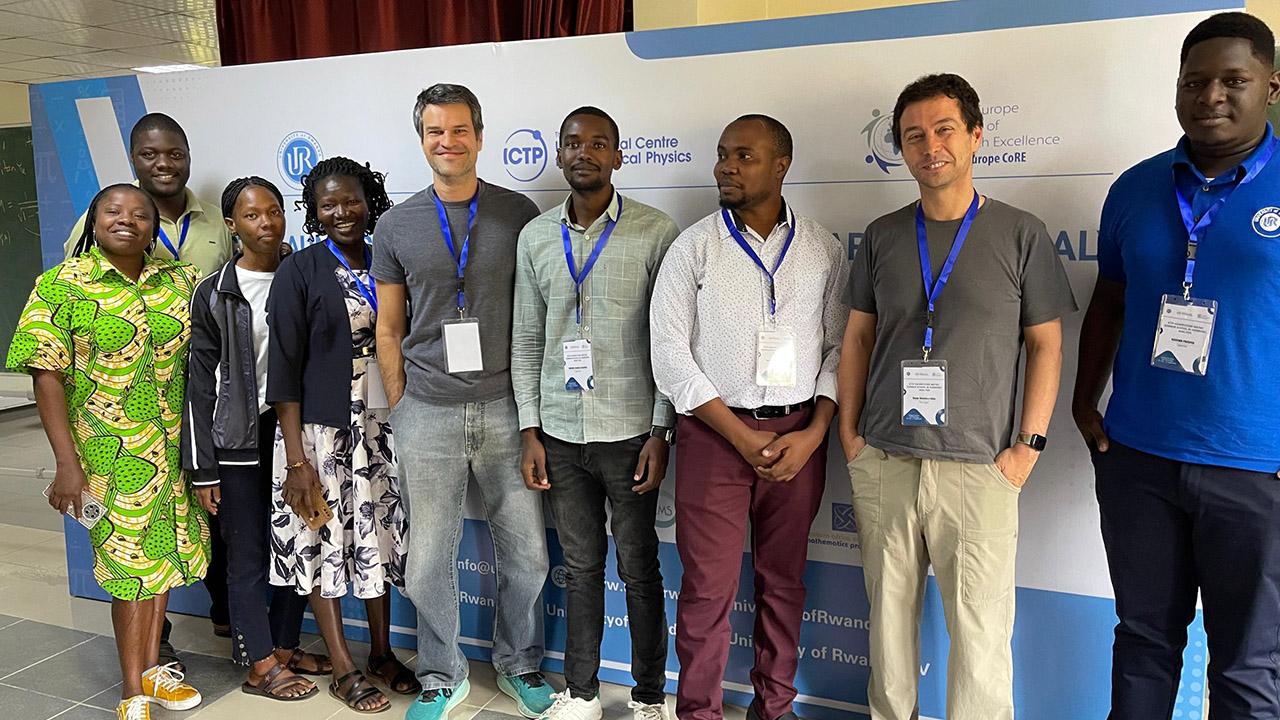
Every year, ICTP and the Eastern African Universities Mathematics Programme (EAUMP) come together to organize a summer school on important mathematical topics. The EAUMP, which is supported by Sweden’s International Science Programme (ISP), comprises universities from six Eastern African countries: Kenya, Rwanda, Tanzania, Uganda, Zambia, and Ethiopia. “The summer school rotates between these six countries every year,” explains Emanuel Carneiro, a mathematician at ICTP and scientific organizer and lecturer in the 2025 edition. “This year, it was in Rwanda and the topic was real and harmonic analysis,” Carneiro adds.
Harmonic analysis is the study of oscillatory phenomena, like the vibrating strings of a guitar or oceanic tides, from the mathematical point of view. Methods, insights, and results from this field are ubiquitous in maths, as well as other areas like signal processing, quantum computing, and biomedical imaging. The ICTP-EAUMP school had the goal of providing master’s and PhD students from Eastern Africa with the foundational knowledge needed to get into the field. It took place on the premises of ICTP’s partner institute in Kigali, Rwanda, the East African Institute of Fundamental Research (EAIFR), and brought together around 45 students. “About half were local students from Rwanda, and half came from the other five countries,” said Carneiro. “It was also an occasion for students from abroad to network with the locals.”
Over the two weeks, the students were offered foundational mini-courses on real and harmonic analysis, and then more advanced classes on applications of those methods to problems in other areas. “The students were not just exposed to new mathematical ideas, but also to different teaching styles, different presenting styles, with lecturers from different countries,” says Carneiro.
The programme also included colloquium-style lectures, where students were exposed to contemporary ideas and research problems. “There were no exams or assessments, but we did have exercise sessions,” explains Carneiro. He also recalls how he got students to come to the blackboard and present their solutions in front of everyone: “I would gift anyone who was brave enough to come to the board an ICTP T-shirt. It worked!”
“It was a great experience,” adds Carneiro, “We organized round tables, and discussions. The atmosphere was very friendly, and the lecturers had the opportunity to engage the students’ minds in many different ways. They didn’t just learn new topics, but also met many different role models for science.”
The schools have been organized for the past twenty years, each year with a different set of sponsors: the 2025 edition was also supported by the Centre International de Mathématiques Pures et Appliquées (CIMPA), the International Mathematical Union (IMU), the International Centre for Mathematical Sciences (ICMS), and CoRe-Math, the African-European Cluster of Research Excellence dedicated to maths. The organization took several months, including a very careful selection of the participants, due to limited funding but also with the goal of building fruitful interactions among the students. The school covered all expenses, from accommodation (for those from abroad) to travel and meals. “Everything was organized flawlessly, both by local organizers and by ICTP,” points out Carneiro.
After the school was finished, the local organizers sent out an anonymous survey to the participants. The answers were vastly positive, and included many pieces of useful feedback. “The school provided a memorable and impactful experience, both academically and personally,” commented one of the students. To another, one of the most interesting parts was “the open-door policy of the speakers, who were always willing to discuss research ideas beyond the scheduled sessions”. The school had a lasting impact on the participants’ academic work as well. One of the participants concluded: “I return from this summer school intellectually enriched, deeply motivated, and newly inspired to push the boundaries of my work”.
















